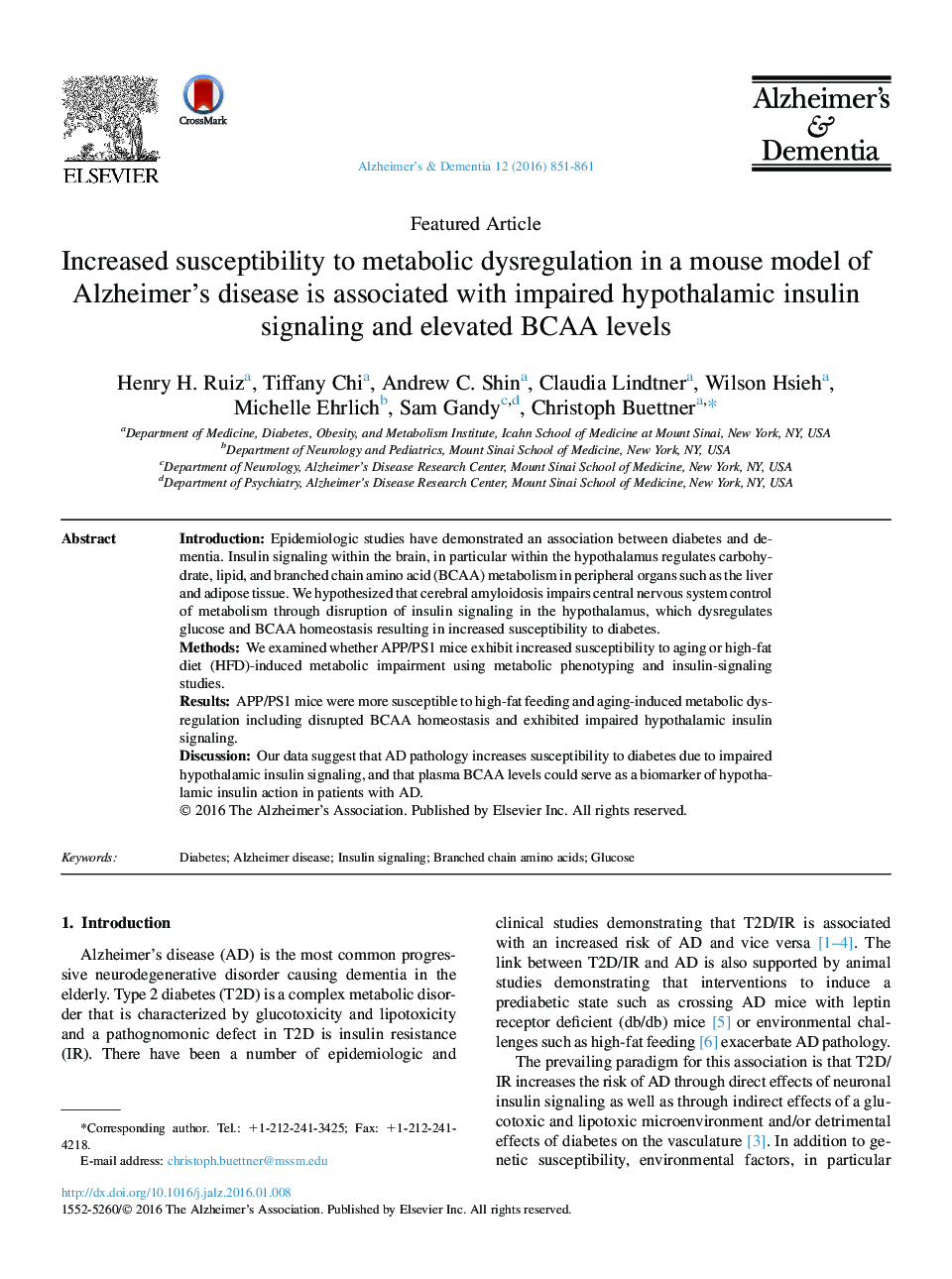| Article ID | Journal | Published Year | Pages | File Type |
|---|---|---|---|---|
| 5623681 | Alzheimer's & Dementia | 2016 | 11 Pages |
IntroductionEpidemiologic studies have demonstrated an association between diabetes and dementia. Insulin signaling within the brain, in particular within the hypothalamus regulates carbohydrate, lipid, and branched chain amino acid (BCAA) metabolism in peripheral organs such as the liver and adipose tissue. We hypothesized that cerebral amyloidosis impairs central nervous system control of metabolism through disruption of insulin signaling in the hypothalamus, which dysregulates glucose and BCAA homeostasis resulting in increased susceptibility to diabetes.MethodsWe examined whether APP/PS1 mice exhibit increased susceptibility to aging or high-fat diet (HFD)-induced metabolic impairment using metabolic phenotyping and insulin-signaling studies.ResultsAPP/PS1 mice were more susceptible to high-fat feeding and aging-induced metabolic dysregulation including disrupted BCAA homeostasis and exhibited impaired hypothalamic insulin signaling.DiscussionOur data suggest that AD pathology increases susceptibility to diabetes due to impaired hypothalamic insulin signaling, and that plasma BCAA levels could serve as a biomarker of hypothalamic insulin action in patients with AD.
